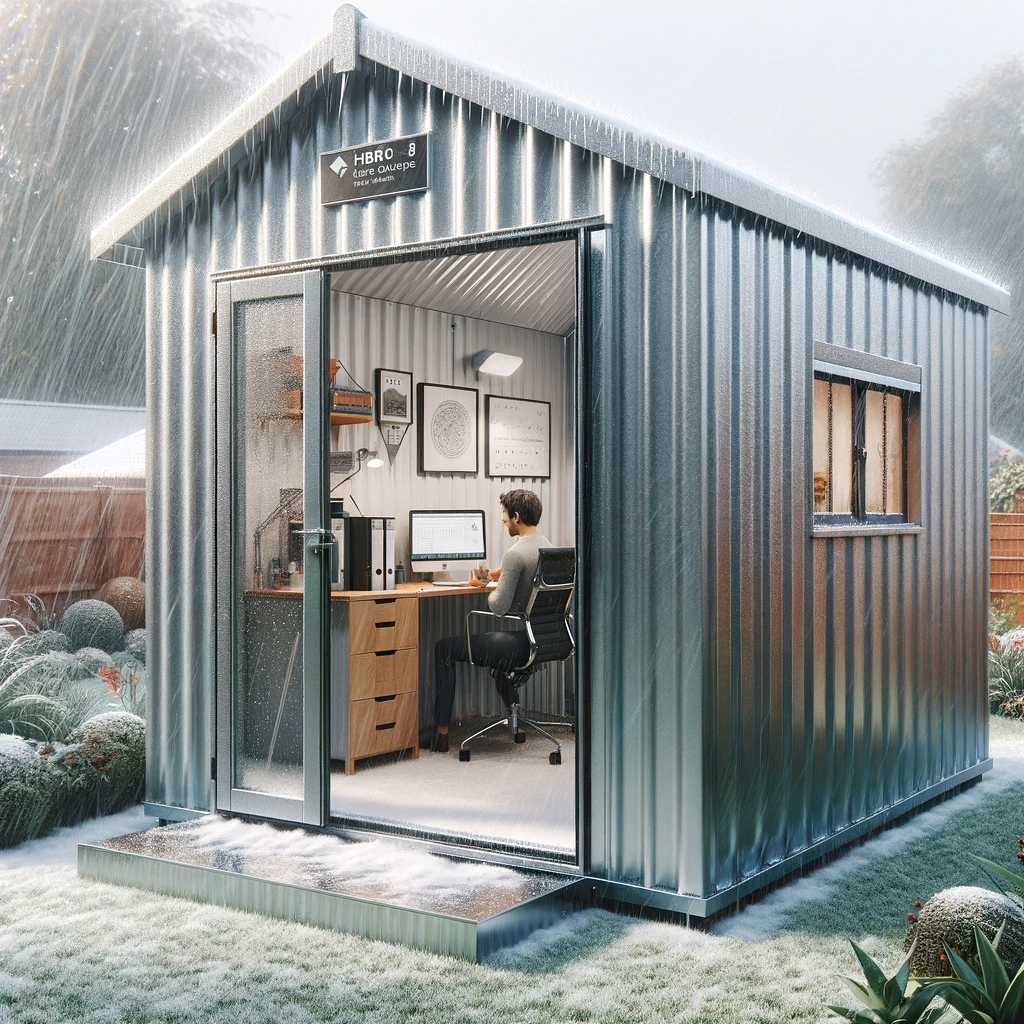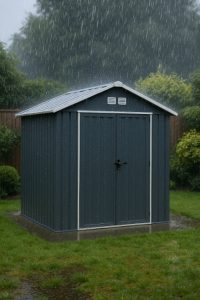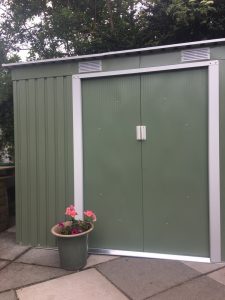Metal garden buildings are strong, rust-resistant, and low-maintenance. But are they up to the challenge of the UK’s unpredictable weather? This guide looks at what makes them, sheds in particular, reliable in tough conditions.
Are Metal Sheds Strong Against the Weather?
The UK climate throws everything at garden buildings. Heavy rain, wind, snow, and even heatwaves. To handle all this, metal sheds rely on the materials used in their construction.
What metal garden storage is made from
Here are the most common materials used in building metal sheds:
- Galvanised steel: This is steel coated in zinc to prevent rust. It’s tough, built to last, and a solid option if you get a lot of rain or snow.
- Aluminium: Lighter than steel and rust-resistant, thanks to the standard powder coating. It suits most climates, but in coastal areas, salt can speed up corrosion if the coating were to become damaged.
- Cor-ten steel: Also called weathering steel. It forms a protective rust layer that helps the material last longer. Strong, heavy-duty, and often used in higher-end garden buildings.
How are metal garden sheds built
The way a metal shed is constructed also affects how well it handles the weather.
- Protective coatings: The most common types are: 1). powder coating, applied to the metal with a dry powder paint finish, and 2.) hot-dipped galvanising, where the metal is dipped in molten zinc. The BillyOh Centro, for instance, uses 0.4mm hot-dipped galvanised steel panels and 0.5-1.2mm reinforced steel for the internal frame. You get a shed that’s sturdier and more resistant to rust, heavy rain, and strong winds.
- Drainage and solid bases: All metal sheds come with sloped roofs, and being built on a suitable base will prevent water from pooling around the bottom. Added gutters and drainpipes can help take water away from the shed. Combined with a foundation, this maintains the structure’s stability in strong winds.
- Insulation: Metal sheds can get condensation inside in damp conditions. Insulation, such as foam panels or reflective sheets, avoids this. You’ll likely have to install this yourself or with a professional’s help, as most don’t come fully insulated as standard.
Read our guide to metal shed insulation to find out which type is best for your shed.
How long do metal sheds last
A metal shed can last anywhere from 15 to 30 years or even longer, depending on a few factors. The quality of the materials, like galvanised steel, helps it resist rust and wear.
While metal sheds are low-maintenance, minimal upkeep every now and then is beneficial. This can be done by hosing down the exterior to remove dirt and debris. Or checking for any chipped or scratched areas and touching them up right away.
Are Metal Sheds Safe from Lightning?
(Customer’s Image: Sapphire Apex Metal Shed)
This is a common concern, but the answer is: yes. Metal sheds don’t attract lightning and are no more likely to be hit than anything else. If struck, the metal can carry the electricity into the ground, similar to how a car works in a storm.
Even so, a few safety tips still apply:
- Don’t touch the frame or walls during a storm.
- Unplug anything electrical inside.
Overall, metal sheds are safe—and in some cases, safer than wood or plastic, as they conduct electricity away rather than accumulating it.
Still not sure if one’s right for you? Read this guide next: Why Metal Sheds Are a Smart Choice: Top 10 Advantages



